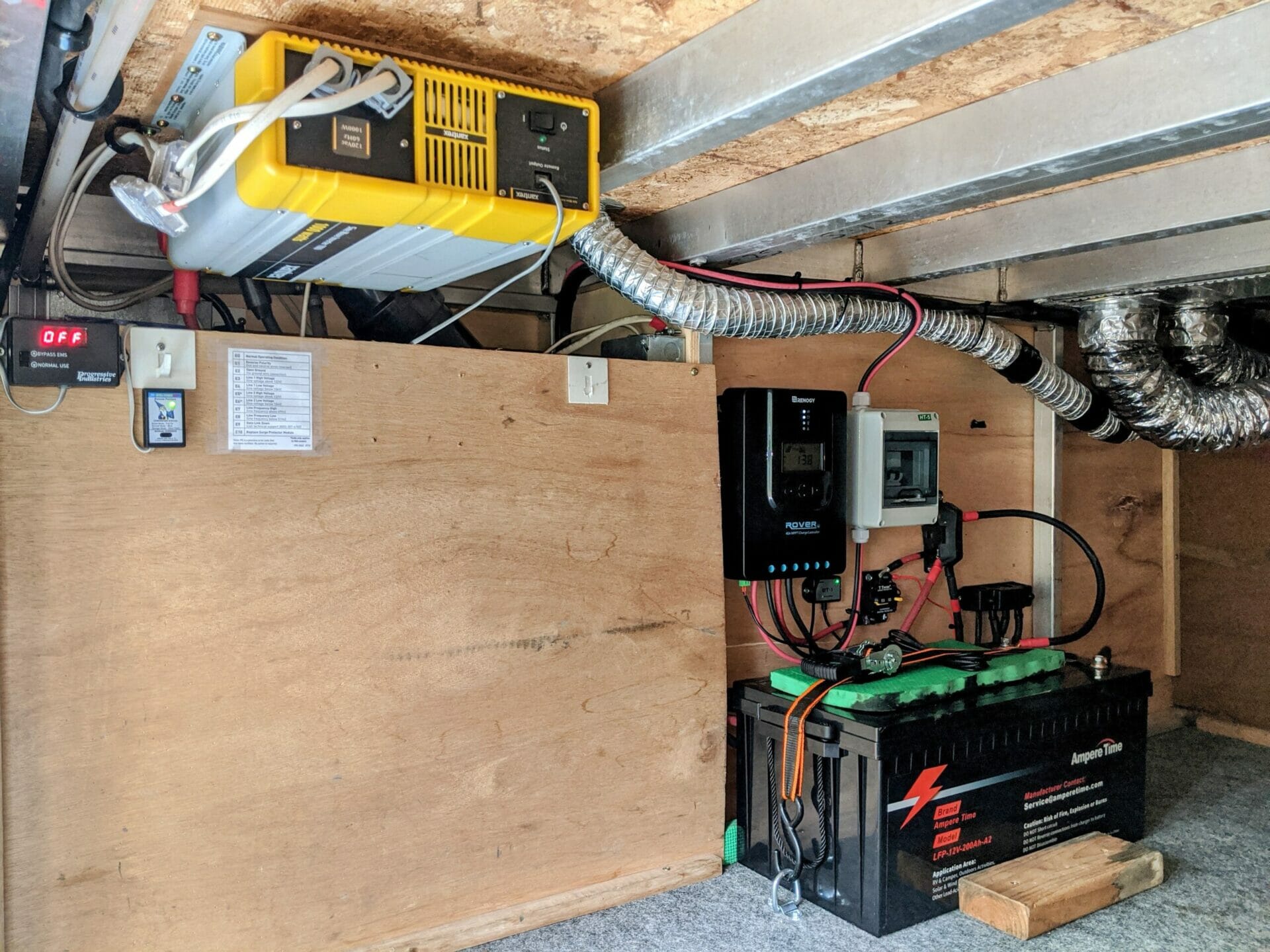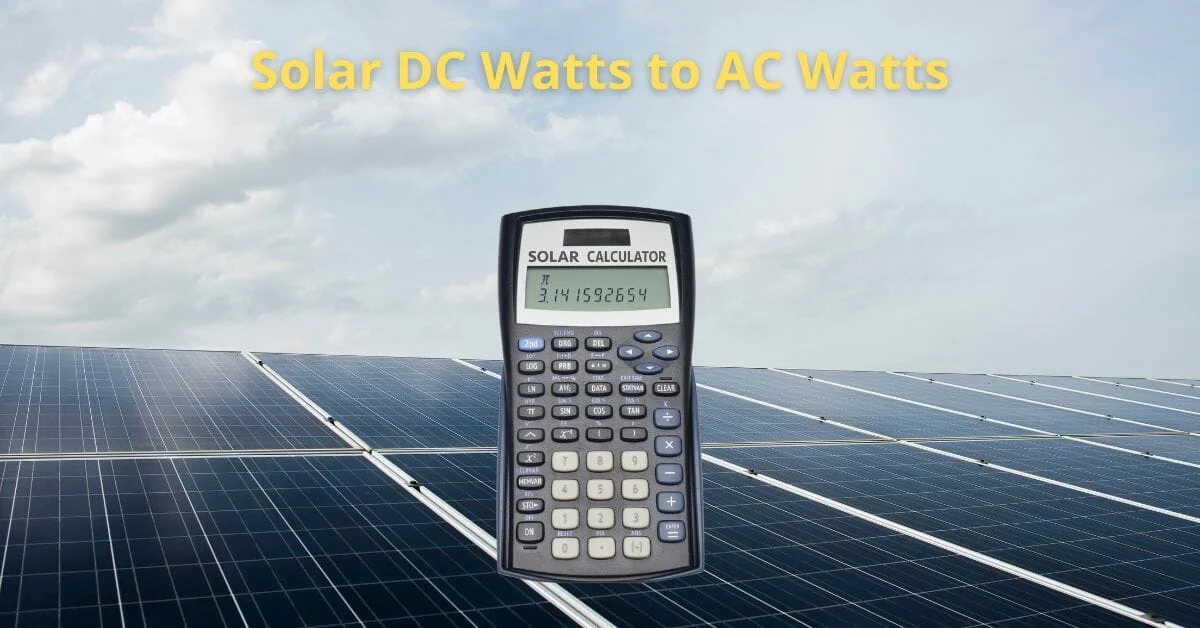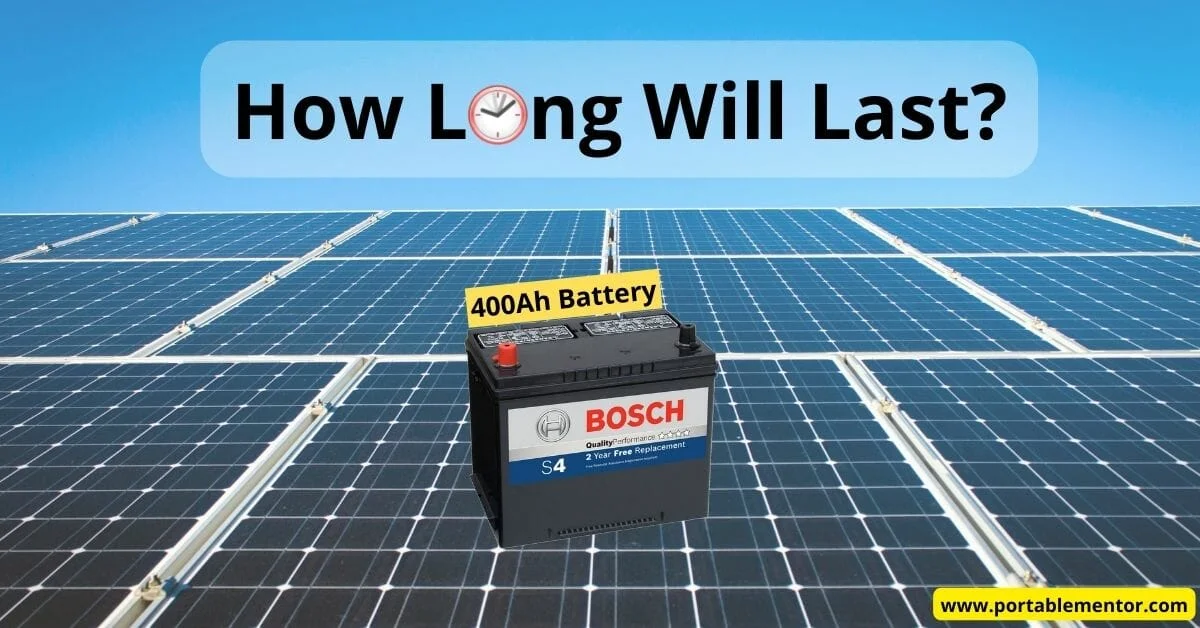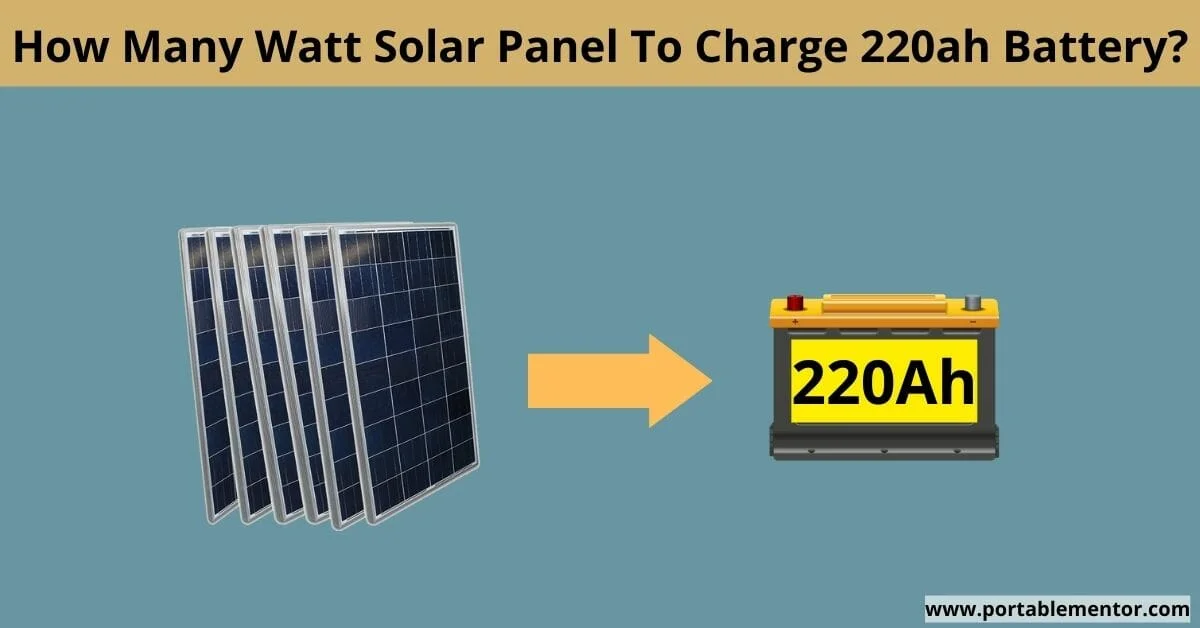
I saw on many forums that most people are confused about what they can run on their 1000,1500,2000,3000, & 5000-watt inverter and how long will their inverter last with a battery.
So I'm gonna explain to you guys in simple words about what you can run on your any size inverter and what are the key point to keep in mind.
And also how long your inverter will last with the battery with the help of examples, charts, and a calculator.
Introduction - How does an inverter work?
Our batteries store power in DC (Current current) but most of our household appliances require AC (Alternating current)
Our batteries come in different voltages (12,24, & 48v) But AC appliances required 120 volts (because our grid power comes in 120 volts).
So an inverter will convert the lower voltage of the battery into 120 volts in order to run AC appliances
Video - Power Inverters Explained - How do they work
What to keep in mind before running a load on the inverter
There are a few points to keep in mind before getting into calculation stuff, Which are the basics and you need to know.
1- Inverter efficiency rate
During the conversion of DC to AC, there will be a power loss. Depending on the inverter's efficiency rate the percentage of loss will vary.
Normally inverter efficiency rates are between 85-95%. But the most standard rate is 85% so we'll take an 85% efficient inverter as an example
So because of the inverter's efficiency rate, your 1000W inverter will have to pull 1150 watts from the battery if you're running it at its full capacity.
This is not recommended because you're using your inverter beyond its limits which in result may damage the inverter or connected appliances
So a simple rule will be to minimize 15% of your inverter's full capacity in order to get the maximum number of watts you can run with your inverter
For example: Let's take a 1000W inverter with an 85% efficiency rate. 1000-15% = 850 watts
You can run a total of 850 watts of load on your 1000W inverter
Related Post: Solar DC Watts To AC Watts Calculator
2- Wire Size
Most people completely ignore the wire size between battery and inverter which is one of the most important things to consider before running an appliance on your inverter
For example: If you're running a 1500W inverter on your 12v battery with 1000 watts of total AC load.
So your inverter will be consuming 83 amps (amps = watts/battery volts) from the battery for which you'll need a very thick cable.
using a thin cable in this scenario can damage the inverter or you'll not be able to run your load. So make sure to use thick wire if you're running high watts of load on your battery with an inverter
This is why building a high wattage solar system in 24, or 48 volts is recommended.
For your ease I have made a chart for you guys, so with the help of this chart you can see what size of wire will be suitable for you according to your inverter size

With the help of this chart, you can select the wire size to connect your inverter with the battery
Video - DC Wire Sizes Explained
3- Surge power
Surge power is the initial boost of power to start a few appliances which lasts for a couple of seconds.
Most of the motor base electronics required surge power which could be 2 or 3 times higher than their stable wattage requirement.
But the good news is that most solar inverters come with a surge power technology to run this kind of appliance.
So make sure that the surge power of your electronic and inverter should match. other you won't be able to run.
This Renogy 2000W inverter has a maximum surge rating of 4000 watts.
What Will An Inverter Run?
A rule of thumb is that the total output load should be less than the inverter capacity.
For example, if you have a 3000-watt inverter you can run up to 2500 watts of output load with it.
As I have mentioned earlier you have to keep in mind the efficiency rate of your inverter before putting the load on it.
That is all you need to know. The total watts can be a combination of different appliances or a single heavy appliance like a microwave, space heater, washing machine, etc.
the wattage required by any appliance will be mentioned on the backside of your electronics, it should be in watts, or sometimes it may be mentioned in amps
So to calculate the number of watts use this formula (watts = Amps*volts) the number of volts will be 120V.
By using this formula you can calculate the capacity of your electronics in watts from amps
How long will a 12v battery last with an inverter?
The next question which comes to mind that how long my inverter will last on load with a 12, 24, or 48v battery. To understand this first of all we need to know
- What size battery is connected
- Its type
- total output load in watts
Battery Size
battery capacity is measured in Amp-hours (Ah) so to make the calculations easier first let's convert the battery capacity into watts or Watt-hours (Wh)
To calculate the battery capacity from Ah to Watts use this formula Watts = battery Ah x Battery Voltage
let's take a 12v 100Ah battery as an example
100*12 = 1200 watts or 1.2kWh
12v 100Ah is equal to 1200 watts of power. But you won't be able to use the 1200 watts here's why
Battery types
12v batteries come in different types, lead-acid, AGM, Gel, & lithium are the most commonly used battery types. Each battery type has its own discharge limit.
This means you can only discharge your battery at a certain percentage otherwise discharging them below their DOD limit can permanently damage the battery
here's a chart of different types of batteries with their recommended DOD (Depth of discharge limit)
| Battery Type | Recommended DOD limit |
|---|---|
| Lithium-ion | 80-100% |
| Gel | 50% |
| Lead-acid | 50% |
| AGM | 50% |
So if you have a 12v 100Ah lithium battery you can use all 1200 watts of power but if you have a lead-acid type then make it half (600 watts)
Related Post: Amps To Watts Calculator: How Many Watts In A 12-volt Battery?
How long will an inverter last on a battery?
To calculate how long will an inverter last on a battery using this formula
Battery capacity in watts - 15% (for 85 efficient inverters) / Output total load = Battery backup time on inverter
let's assume that you have a 12v 100Ah lithium battery connected with a 500W inverter running at it's full capacity and the inverter is 85% efficient
1200 - 15% = 1020
1020/500 = 2 hours
So a 100Ah lithium battery will last 2 hours on a 500W inverter
Inverter Runtime Calculator
Related FAQ's
A 1000 watt inverter can run a fridge, Small microwave, TV, laptop, Computer, LED Lights, Fan, Humidifier, Electric Blanket, Freezer, Hair Dryer, Blender, Toaster, Well Pump, Clothes Washer, Printer, Sewing Machine, & other appliances with up to 850 Watts of an input requirement
A 400W inverter can run TV, Ceiling Fan, Desktop computer, laptop, LED bulbs, Printer, Smartphone charger, Curling Iron, Humidifier, Electric Blanket, & Sewing Machine
A 300W inverter can run a laptop, Led monitor, led lights, Phone charger, Electric blanket, sewing machine, Humidifier, and other appliances with up to 250 Watts of an input requirement
A 750-watt inverter can run a TV, laptop, Desktop computer, Ceiling Fan, Bulbs, led lights, Electric blanket, and other appliances with up to 650 Watts of an input requirement
A 600W inverter can power TV, led lights, computer, laptop, Ceiling Fan, Printer, Blender, Video Game Console, Curling Iron, Humidifier, Sewing Machine, & other appliances with up to 500 Watts of an input requirement
a 500w inverter can run appliances with up to 450 Watts of an input requirement like laptop, TV, ceiling fan, Sewing machine, Printer, etc...
5000w inverter can run appliances with up to 4500 Watts of an input requirement like Fridge, TV, microwave, Coffee Machine, Dishwasher, Freezer, Toaster, Central Air Conditioner (AC), Space Heater, Well Pump, Iron, Clothes Dryer, Washing Machine, Hair Dryer, Vacuum, Drill machine, etc...



